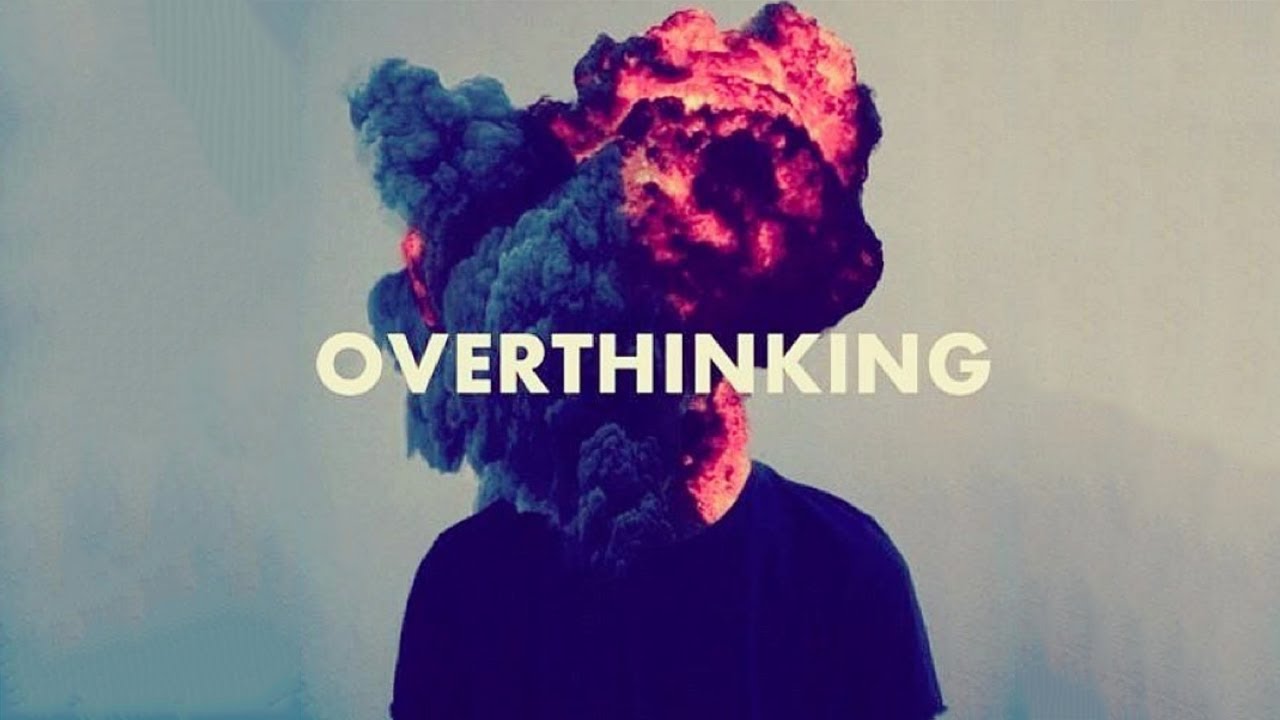
6 Habits that will help you Stop Overthinking

Today is a great guest post from Erik Bergman on how to stop overthinking and control your mindset and thinking to level up!
We’re all guilty of overthinking. It’s in our human nature to go over situations multiple times, wherein all fairness, it isn’t helpful. But overthinking can develop into a chronic condition. It manifests in such a way that you second-guess everything you do. As such, you need to develop certain habits to get you to stop overthinking.
I’m going to help you by telling you all about these habits. I have a list of 5 that I want to share with you. So without wasting too much of your time, shall we begin?
Find A Distraction
A distraction can be a bad thing. For example, when working from home, the last thing you want is distractions. They take your mind off what’s important and shift your attention to something less important. That’s precisely how finding a distraction can help you stop overthinking.
In the eyes of a chronic overthinker, it becomes important to over situations. In all seriousness, overthinking isn’t important, but your mind is tricking you into thinking it is. So that’s exactly how finding a distraction can help you. By shifting your focus on something “less important”, you’ll be getting into a habit of ending overthinking.
You might think of this habit as quite simple. But for chronic overthinkers, it might be more difficult to do it. As such, you’ll need to practice and even go beyond the means of finding a distraction. Maybe go into the kitchen and prepare a meal? Head out in the nearby park for some fresh air. Go as far as volunteering at a local non-profit organization.
There are tons of things to do that can be a distraction.
Start Meditating
We fill our heads with all kinds of nervous chatter that makes it impossible to think straight. Overthinking also does that. So maybe a great way to start overthinking is to look at ways to clear your mind? As with finding a distraction, there are so many ways to clear your head. But I personally recommend meditating. When I meditate, I make it easier to clear my mind from the important things.
On the other side of the aisle, meditating is quite good for you. So by doing it, you’re benefiting in more than one way. Meditating is excellent for improving your focus. Thus, it can turn into a habit for building better focus. When it comes to practicing meditating, there are a few techniques out there to put your mind into.
The one I recommend is mindfulness meditation. If you’re not familiar with it, mindfulness meditation is all about being aware of your thoughts. That way, you can better understand why you’re overthinking and look for ways to stop it. Other techniques include transcendental meditation, guided meditation, vipassana meditation, chakra meditation, and of course, yoga.
While no doubt you’re a stranger to most of these, meditation can turn into a habit to help you stop overthinking.
Come Up With A Mantra
For those of you who don’t know what a mantra is, allow me to explain it in a few words. A mantra is something you say to yourself. You will come up with a mantra and say it every time you’re overthinking. The ancient Hindus believed that mantras have magical powers. Those who practiced mantras said it to be quite helpful in helping them achieve their goals.
Since the goal is to stop overthinking, you can come up with a mantra to help you do just that. An example of a mantra can be saying something as simple as “I know I can stop overthinking.” You don’t have to say this exact phrase. As a matter of fact, it doesn’t even have to be a phrase or a word. It can be a sound, a syllable, or even something you utter to yourself.
Mantras are closely related to meditating. Those who meditate oftentimes use their mantra to achieve greater success. You don’t have to be a believer of the so-called “magical” effects of a mantra, but do know that it can be helpful. I use it all the time whenever I’m stressed or need to clear my mind. And let me tell you something; it does help.
Solve the Problem
You can overthink any situation. The reasons why you’re overthinking might not be the same as mine. I used to overthink that I wasn’t a very good public speaker. As a matter of fact, I wasn’t very good at it. But instead of improving at it, I used to dwell on it all the time.
But all that came to an end once I put my mind to it. Instead of dwelling on the issue, I solved it. It took some time, but I stopped overthinking once I became a better public speaker. That’s why being proactive is always better than being reactive. When you overthink, you react to the problem. When you’re proactive, you’re not overthinking and instead of solving the problem.
I have a podcast where I talk about different topics. Some of the topics are related to self-improvement. On my becoming great podcast, in a particular episode, I talked about how to stop overthinking and procrastinating. Procrastinating was a huge issue for me. I used to get these situations in my head where I thought I wasn’t good enough. But I was comparing myself to people who were years away from me. Did that do any good? Of course not. It only made things worse.
Go With the Flow
If you still can’t stop overthinking, then you do indeed have a serious issue on your hands. Sometimes, all it takes is a push from the universe to help you settle the problem once and for all. But what do I mean about this? Well, no matter how hard you try, you still end up overthinking. In that case, I suggest you leave it to the universe to decide.
There are a lot of things you can do to help you settle an internal debate once and for all. You could grab a dice, roll it, and see where it lands. Since a dice has six sides, you can split it into two. For example, odd numbers will represent one option, and even numbers will represent the other. See where it lands and go with that option.
If you don’t like throwing dice, you could use a deck of cards. Follow the same logic. Pick a card and see what number you get. That way, you’re letting the universe decide for you. Carry this dice or deck of cards with you at all times to help you settle everyday decisions faster.
While it might sound silly at first, it comes helpful in any situation.
Author Bio

Erik Bergman co-founded Catena Media and helped grow it to over 300 employees and a $200 million valuation before stepping away to start Great.com, an iGaming organization that donates 100% of its profits to environmental charities. In addition to running a successful online affiliate business, Erik also hosts the Becoming Great podcast, shares entrepreneurship tips with his more than 1 million social media followers, and contributes to sites like Entrepreneuer.com, Business Insider, Foundr, and Forbes.
